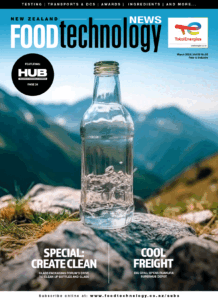 New Zealand food has seen a strong international demand throughout the COVID-19 pandemic and agriculture minister Damien O’Connor believes this could help get more kiwis into primary sector jobs.
New Zealand food has seen a strong international demand throughout the COVID-19 pandemic and agriculture minister Damien O’Connor believes this could help get more kiwis into primary sector jobs.
Apples and kiwifruit are the most in demand with $890 million of fruit exported between 1 February and 22 April 2020.
Mr O’Connor says the dairy and meat sectors have also held up well into April and shipped $6.18 billion worth of products overseas during the same period.
“Overall primary sector export revenue remains higher into April than for the same period in 2018, despite the forestry sector essentially being shut down over the past month. Now we’ve moved into Alert Level 3, industries affected by the lockdown such as forestry and wool are back into action and that will help,” Mr O’Connor says.
“The strength of New Zealand’s primary sector coupled with the success of our health response to COVID-19 gives us a head-start on the world as we get our economy moving again.
“Our primary sector contributes over $46 billion dollars a year in exports to our economy and provides jobs for hundreds of thousands of people in our rural communities. These latest stats show the sector is in a strong position to help us reboot our economy.
“There is no shortage of demand. The world wants our high quality product. We now need a skilled workforce to help us seize the opportunities that are currently before us.”
The primary sector will need about 50,000 more people in a post-COVID-19 world, says Mr O’Connor.
“There are jobs going all over the country ranging from hands on work in orchards, on farms, in forests and fishing boats, to professional roles in engineering, science and management.
“The Government is working alongside the primary sector to help ensure workers get to the places they are needed. We’re currently investigating further ways we can boost the primary sector workforce through the Government’s $100m redeployment scheme.
“I’ve been impressed by the way the primary sector, government agencies and others have come together to support each other, further reinforcing that our team of 5 million is just as important now as during the lockdown,” he says.


































































































